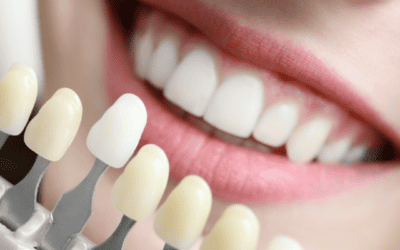By now we are all pretty well acquainted with Coronavirus. But what exactly is a virus and what other ones should you be worried about when it comes to the health of your mouth?
There are mouth viruses?
Hopefully by now after reading all of our blogs, you know that bacteria cause tooth decay and gum disease. These are the two most common diseases of the mouth. But did you know that viruses can cause mouth problems too? Firstly, let’s have a quick science lesson on the difference between bacteria and viruses.
What is a virus?
Both bacteria and viruses are microscopic, and both have the potential to cause disease. Viruses are actually smaller than bacteria and they require a ‘host’ (that is you, an animal or a plant) to multiply. The virus will enter your cells and that is what makes you sick. Depending on the type of virus and the type of cell, different diseases can occur.
Antibiotics only work on bacteria, not viruses. The two most common viruses that we know of are the ones that cause the common cold, and the one that causes the flu. That is why antibiotics will not be effective.

Antibiotics only work on bacteria.
Antivirals treat viruses.
Which viruses affect the mouth?
Herpes Simplex Virus
The most common is the herpes simplex virus. This is the virus that causes cold sores. Once infected, the virus lies dormant in your body and then reactivates and gives you a cold sore, usually at the time you least want it!
For these type of viruses we talk about the primary infection (when you were first infected) and the reactivation. The primary infection of the herpes simplex virus can cause flu-like symptoms and blisters and ulcers inside the mouth (on the gums, inside the cheeks and on the tongue). However, most people become infected and don’t know at all. It is reported that 90% of adults have the herpes simplex virus in their system. Once these symptoms clear up, the virus stays in the body, but lies dormant.
What to do if you have a cold-sore
If the virus flares up, a cold-sore appears. These can pop up on the lips, chin and side of the nose. They usually appears as a fluid-filled blister which then bursts and crusts over. Most people find their cold-sores tend to recur in the same place. Some people report an early ‘tingly’ stage before it becomes visible. This is the time to try some anti-virals like aciclovir or famciclovir. These are applied like creams to the area and can help shorten the duration it takes for the cold-sore to heal.

Cold-sores can cause embarrassing sores on
the lips, chin and nose.
However, most cold-sores don’t cause any issues or complications. You could try applying cold to the area or a nice moisturising lip cream. Pain relief can help if they are painful. It can take 10 days for a cold sore to completely heal.
Things that have been known to reactivate cold sores:
- Stress
- Trauma
- Sunlight
- Exposure to strong winds or extreme cold
- Hormonal changes
To minimise your risk of getting a cold sore, make sure you wear sunblock on your lips and avoid the triggers that set yours off. Manage your stress levels and avoid getting run-down.
Try not to touch it. If you do, make sure to wash your hands. You can spread the virus, including into your eyes. Make sure not to share anything that goes in or near your mouth, for example don’t share toothbrushes (don’t do this anyway!) cutlerly, drink from the same glass or share towels. Avoid close contact and kissing, especially young babies or those with compromised immune systems.
Should I go to the dentist if I have a cold-sore?
This depends on the stage of the cold-sore. When it is in the early blister stage it might be advisable to post-pone your treatment. This will depend on what treatment you are having done. It’s always best to phone your dentist as soon as you are aware you may have a cold-sore coming and take their advice.

Depending what treatment you are having
and how sore your cold-sore is, sometimes
dental treatment has to be postponed.
Human Papillovirus
The most serious virus that can affect the mouth is the human papillomavirus (HPV). It has actually been implicated in a number of head and neck cancers. The problem with these cancers is that they can be more difficult to detect and diagnose. They can have no symptoms – they can be very subtle and cause no pain. Did you know that every time you go for a dental check-up, your dentist isn’t just checking your teeth? They are doing a screening of the soft tissues of your mouth to pick up any unusual lumps or bumps. The majority of these are harmless, but some require careful monitoring or biopsy to rule out anything more serious. This is another reason not to skip that 6 monthly dental check-up.

The dentist checks more than just your teeth.
A thorough screening of the soft tissues of your
mouth helps pick up anything early for the
best chance of a successful outcome.
Varicella Zoster
This is the virus that causes chicken pox. This virus also lies dormant after the primary infection (chickenpox) and can re-appear as shingles. This is more common in those over 60 and it is not known why it reactivates. Shingles can occur in different parts of your body and it can actually occur in the mouth. Small clear blisters can appear that itch or tingle for around a week and clear up within 4 weeks. In the mouth they can be very painful.
What if I have shingles in my mouth?
If you have lesions or blisters in your mouth you must be super meticulous with your hygiene so they don’t get infected. Mouth rinses with antimicrobials can help, for example Listerine, Savacol or Curasept.
Treatment with antiviral medication will help clear the virus up and prevent complications. The most serious complication is nerve damage , causing pain that lasts for months. Antivirals work best when taken early so if you are worried about any lesions, blisters or bumps in your mouth – always get them checked out straight away. You can call our friendly team for further advice or to book an urgent appointment.
Hand, foot and mouth
This is most common in toddlers and young children. It’s caused by the coxsackie A virus. It usually starts with a sore throat and can progress to cause blisters and sores inside the mouth. The mouth can become so sore that the child won’t want to eat. It’s really important to keep fluids up and sipping on cold water can actually be soothing. Paracetamol can help with pain and fever. It’s also important to make sure the teeth are still being cleaned – use a soft toothbrush and brush gently.

Our friendly team are here to help you – give
us a call.
What the dentist can do
The dentist doesn’t just look at your teeth. Doing a comprehensive oral health assessment lets them check your full medical history and all the soft tissues of your lips, cheeks, tongue and palate. They can pick things up early, which in the case of head and neck cancers, could save your life.
Think you are overdue your dental exam? Call our friendly team to book in your assessment.
Resources
https://www.betterhealth.vic.gov.au/health/conditionsandtreatments/cold-sores



